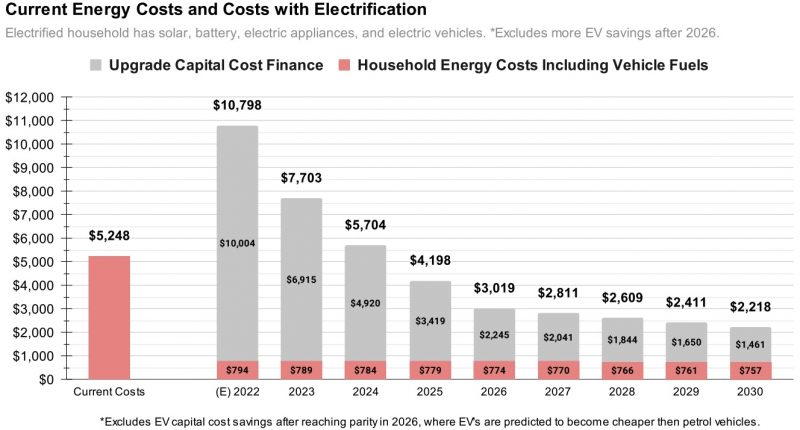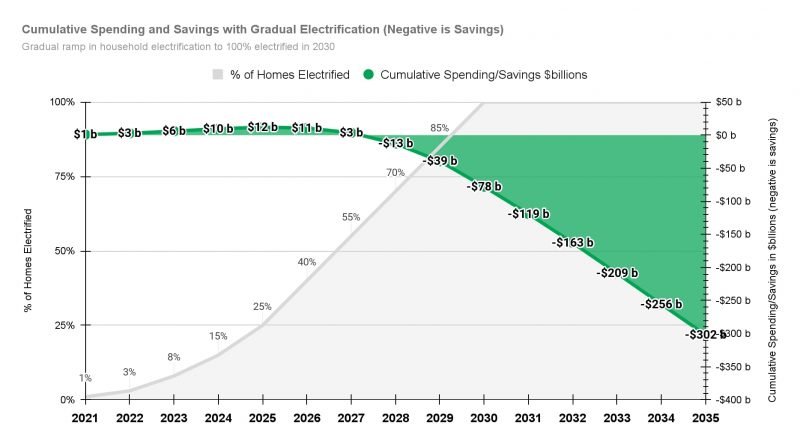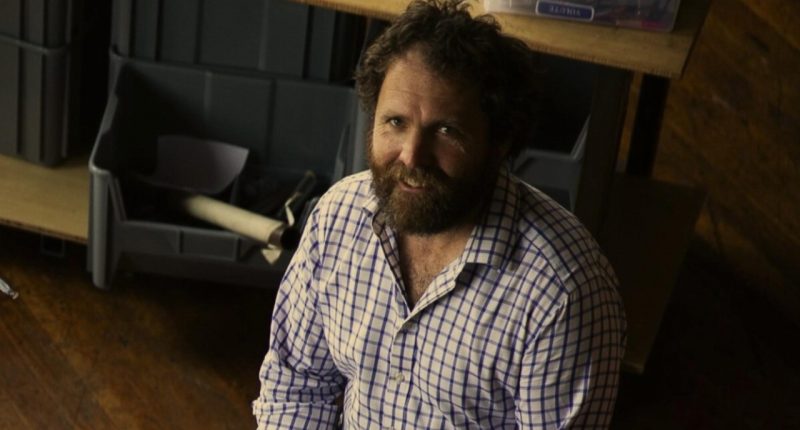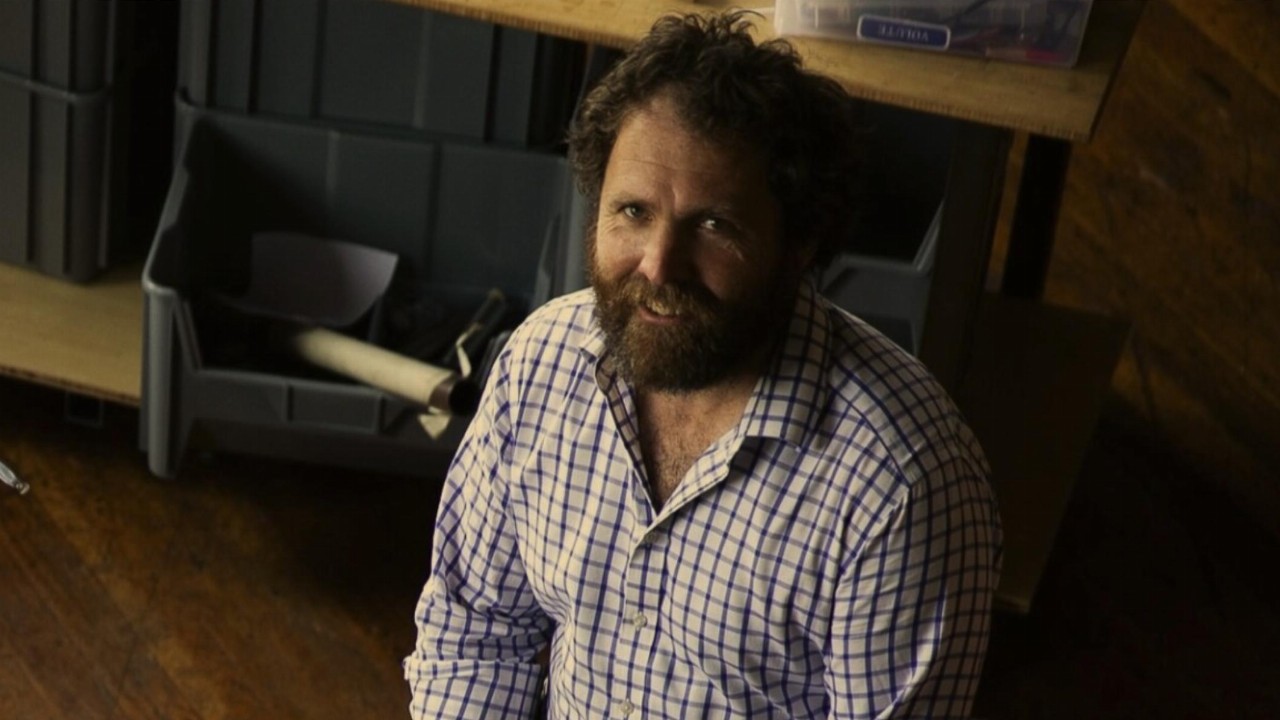- A new report from energy think tank Rewiring Australia claims the key to slashing domestic carbon emissions is to “electrify everything”
- The report claims a switch to electric vehicles and home heating systems could save Australians some $5000 per year by 2030
- As such, the report calls on the Australian government to provide $12 billion in subsidies by 2025 to allow for the mass domestic electrification
- Rewiring Australia says the subsequent savings would be “gigantic”, so the government support should be viewed as an investment rather than an expense
- Along with the household savings, Rewiring Australia claims the domestic electrification could slash domestic carbon emissions by 33 per cent by 2030
A new report from energy think tank Rewiring Australia claims the key to slashing domestic carbon emissions is to “electrify everything”.
What’s more, the report claimed the mass electrification of household machines could save Australian homes some $5000 per year by 2030.
Rewiring Australia is the local arm of Rewiring America, a non-profit organisation recently founded by Australian-American engineer Dr Saul Griffith as part of the Biden administration’s electrification agenda to fight climate change.
According to the think tank’s research, electric vehicles and heating and cooling units will need to be the primary driver of the emissions reduction and subsequent household savings.
The move will require some $12 billion in subsidies from the Federal Government by 2025 but could slash domestic carbon emissions by 33 per cent by 2030.
“Castles and Cars”
The Rewiring Australia research found that Australia’s 10 million households were responsible for roughly 42 per cent of domestic emissions.
The majority of this comes from home energy and personal vehicle usage, which together account for over a third of domestic emissions.
As such, cars and heating systems are the core focus areas of the “electrify everything” mantra.
The report took aim at the Morrison government’s “technology, not taxes” approach to emissions reduction, which focuses primarily on developing new tech to replace existing fossil-fuel-heavy machines.
Contrarily, Rewiring Australia claimed the technology to hit net-zero emissions as a country not only already exists but is becoming increasingly affordable for the everyday Australian.
“New technologies are not the answer,” the report said.
“We need to embrace solutions that are already on the table, which fortunately are sound and effective.”
Dr Griffith said no country in the world is in a better place to seize the opportunity for cheaper energy than Australia.
“Australians already lead the world in harvesting solar electricity. Now we have the technology available to use it,” Dr Griffith said.
“With modest public investment in our homes, cars, and communities, we can electrify everything without sacrificing our way of life.
“If we embrace this shift now, we can enjoy cheaper, cleaner, healthier energy, and win the global decarbonisation race.”
Modest investment, government support
A key deterrent for the switch to electric cars and a shift away from gas heat pumps and stovetops is the initial cost Australians need to front for the electric products.
As such, the Rewiring Australia report said while the savings brought about by electrification would ultimately outweigh the upfront costs of the switch, most households couldn’t afford the initial investment.

The answer, according to the think tank, is government subsidies to help fund this initial investment through to mid-2022.
“If we begin electrifying our homes with roughly 3 per cent in 2022, 15 per cent in 2024, and 40 per cent in 2026, the spending required to pay for the capital cost difference (or break-even point) is predicted to be around $12 billion in total,” the report said.
“For context, that’s just roughly ~9 per cent of what we are predicted to have spent on the COVID-19 response in the last two financial years, or roughly ~18 per cent of our defence spending in those two years.”
The report said even then, the savings brought about by the subsidies would be “gigantic”, meaning the government support should be viewed as an investment rather than an expense.

Rewiring Australia said the average cost per 100 km for a petrol-powered car is $12.14 at $1.42 per litre.
An electric vehicle charged on the current grid would cost $6.48 per 100 km, while an electric car charged with solar and battery power at home could cost as little as $4 per 100 km.
Similar savings are predicted for gas heating compared to electric heat pumps.
According to the think tank’s modelling, the $12 billion in government support could translate to $40 billion per year in savings by 2030.







